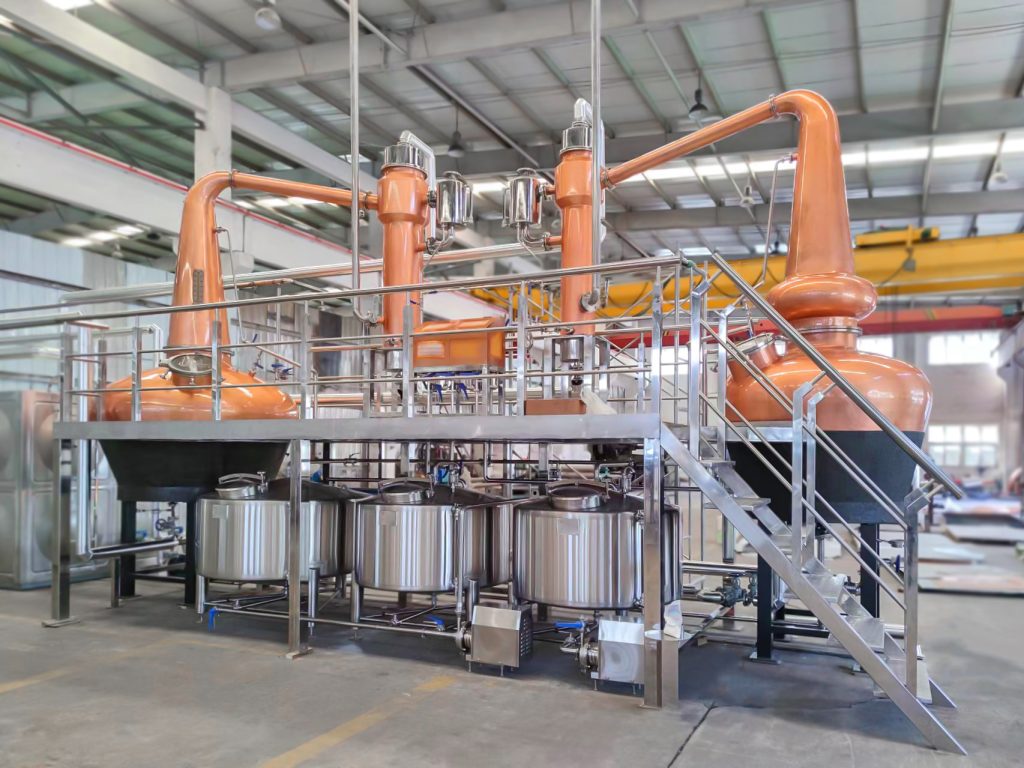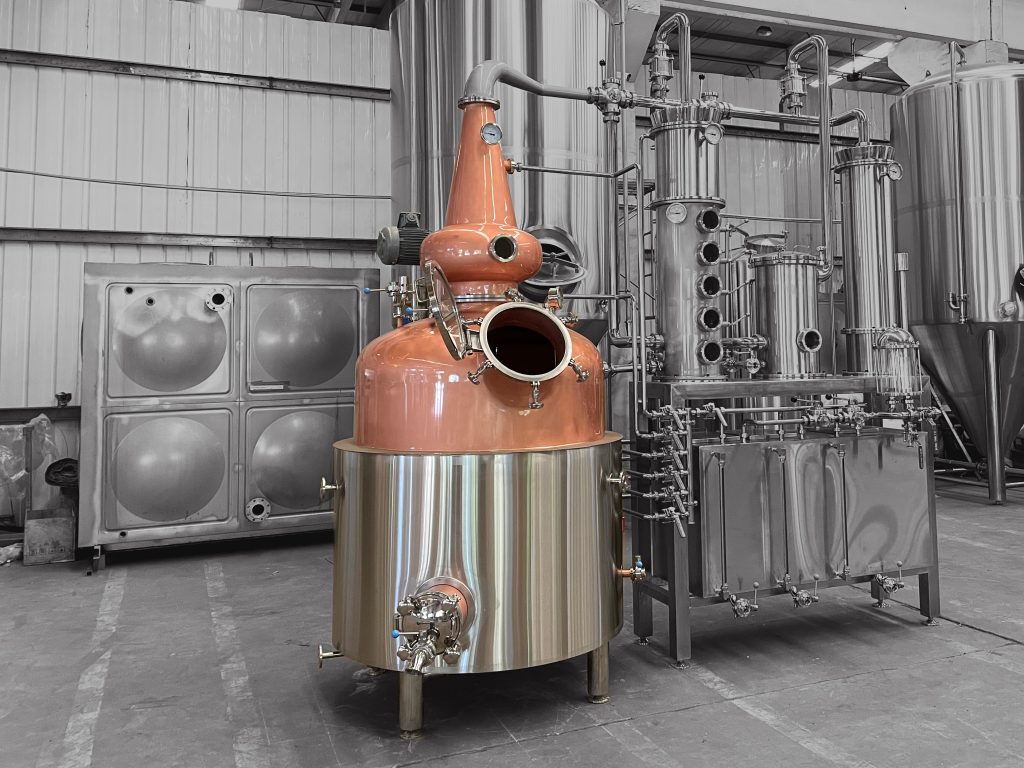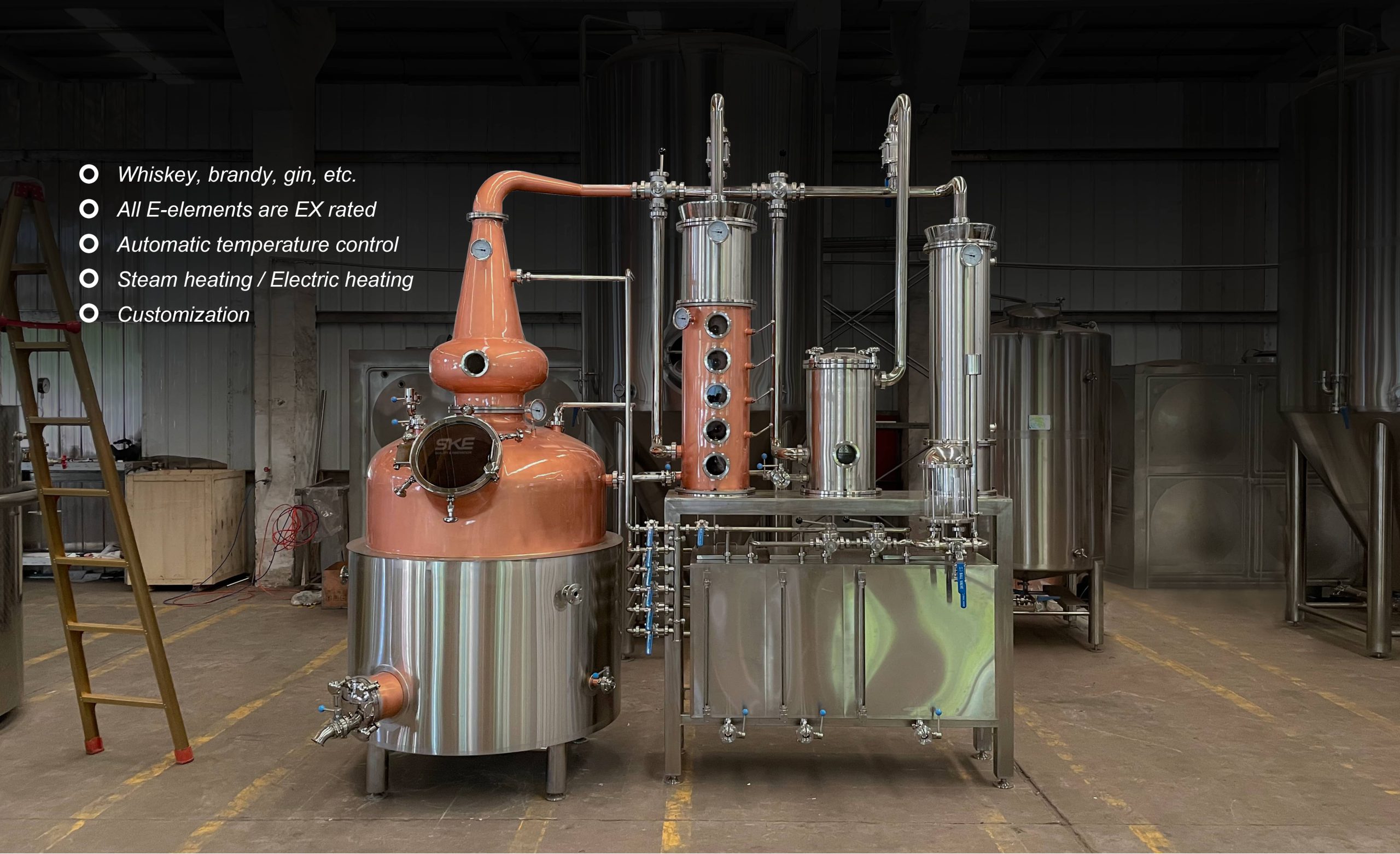مقدمة

الكفاءة والجودة من العوامل الحاسمة في صناعة إنتاج البيرة، حيث تسعى مصانع البيرة الحديثة باستمرار إلى تحسين عملياتها. تلعب معدات تقطير البيرة المتقدمة دورًا محوريًا في تحقيق هذه الأهداف من خلال تحسين مراحل مختلفة من عملية التخمير. يستكشف هذا الدليل الشامل كيف يمكن لمصانع البيرة الاستفادة من أحدث التقنيات لتحقيق أقصى قدر من الكفاءة وتحسين الإنتاج والحفاظ على جودة المنتج المتفوقة.
فهم Beer Distillery Equipment
What is Beer Distillery Equipment?
Beer distillery equipment encompasses a diverse range of machinery and tools essential for brewing operations. From initial mashing and lautering to fermentation, filtration, and packaging, these components work cohesively to ensure consistency and excellence in beer production.
Components of Modern Beer Distillery Equipment
Modern equipment includes sophisticated mash tuns equipped with automated temperature controls, advanced fermenters with precise pressure and temperature monitoring capabilities, efficient filtration systems featuring automated cleaning processes, and high-speed packaging lines. Each component is designed to streamline operations, minimize manual intervention, and optimize resource utilization.
Key Benefits of Advanced Equipment
كفاءة محسنة
Advanced beer distillery equipment significantly reduces brewing times and minimizes manual labor, leading to increased production throughput. Automated processes such as mash temperature control and programmable recipe management systems enhance repeatability and consistency, thereby improving overall operational efficiency.
Improved Quality Control
Precise control over brewing parameters, including temperature, pressure, and fermentation conditions, ensures consistent product quality batch after batch. Automated monitoring systems enable real-time data analysis, facilitating prompt adjustments and ensuring optimal brewing conditions.
Optimizing Operations with Advanced Technology
Automation in Brewing Processes
Automation plays a crucial role in modern breweries by automating repetitive tasks and maintaining precise control over critical brewing parameters. Automated systems not only enhance efficiency but also reduce human error, resulting in higher product quality and consistency.
Utilization of Data Analytics
Integration of data analytics enables breweries to gain valuable insights into production processes, identify areas for improvement, and optimize resource allocation. Predictive maintenance algorithms help prevent equipment failures, minimizing downtime and ensuring continuous operation.
Comparison of Advanced Beer Distillery Equipment
| نوع الآداة | سمات | فوائد |
|---|---|---|
| ماش تونز | Automated temperature control | Consistent mash profiles, reduced labor |
| التخمير | Pressure and temperature monitoring | Enhanced fermentation control, higher yields |
| أنظمة الترشيح | Automated cleaning processes | Improved beer clarity, reduced downtime |
| خطوط التعبئة والتغليف | High-speed automation | Increased throughput, reduced bottling time |
Sustainability in Brewing Practices
Importance of Sustainable Brewing Practices
Sustainable brewing practices are crucial for modern breweries striving to reduce their environmental footprint and uphold corporate responsibility. As the beer industry continues to grow, so does its impact on natural resources and ecosystems. Advanced beer distillery equipment plays a pivotal role in promoting sustainability by incorporating energy-efficient designs, implementing water conservation technologies, and adopting waste reduction strategies.
كفاءة الطاقة
Advanced brewing equipment integrates energy-efficient technologies such as heat recovery systems, variable speed drives, and LED lighting. These innovations help breweries minimize energy consumption during brewing operations, thereby reducing greenhouse gas emissions and lowering overall operational costs.
المحافظة على المياه
Water is a vital resource in beer production, and advanced equipment includes efficient water management systems such as closed-loop cooling systems and automated cleaning processes. These systems not only optimize water usage but also reduce wastewater generation, preserving water resources and supporting sustainable water stewardship practices.
تقليل النفايات
Advanced filtration systems and packaging technologies contribute to waste reduction by improving product yield and minimizing packaging material usage. Additionally, breweries can implement recycling programs for spent grain and other by-products, turning waste into valuable resources and reducing landfill contributions.
Implementing Advanced Equipment: Considerations

Cost vs. Benefit Analysis
Investing in advanced beer distillery equipment requires a thorough cost-benefit analysis. While upfront costs may be significant, potential operational savings, increased production capacity, and improved product consistency justify the investment over the long term.
Staff Training and Support
Effective implementation of advanced equipment necessitates comprehensive staff training and ongoing technical support. Proper training ensures that brewery personnel can operate equipment efficiently, troubleshoot issues effectively, and maximize its capabilities.
خاتمة
متقدم معدات تقطير البيرة represents a transformative leap forward for breweries seeking to enhance efficiency, elevate product quality, and maintain competitiveness in a dynamic market. By embracing automation, leveraging data analytics, and prioritizing sustainable practices, breweries can achieve higher production yields, reduce operational costs, and meet consumer demand for premium craft beer.
التعليمات
Q:What are the essential components of معدات تقطير البيرة?
A:Beer distillery equipment includes mash tuns, fermenters, filtration systems, and packaging lines, each crucial for different stages of the brewing process.
Q:How does advanced equipment improve brewing efficiency?
A:Advanced equipment reduces brewing times, minimizes manual labor, and optimizes resource utilization through automation and precise control systems.
Q:What considerations are important when investing in advanced معدات التخمير?
A:Key considerations include upfront costs, potential operational savings, return on investment (ROI), and the importance of comprehensive staff training and technical support.

